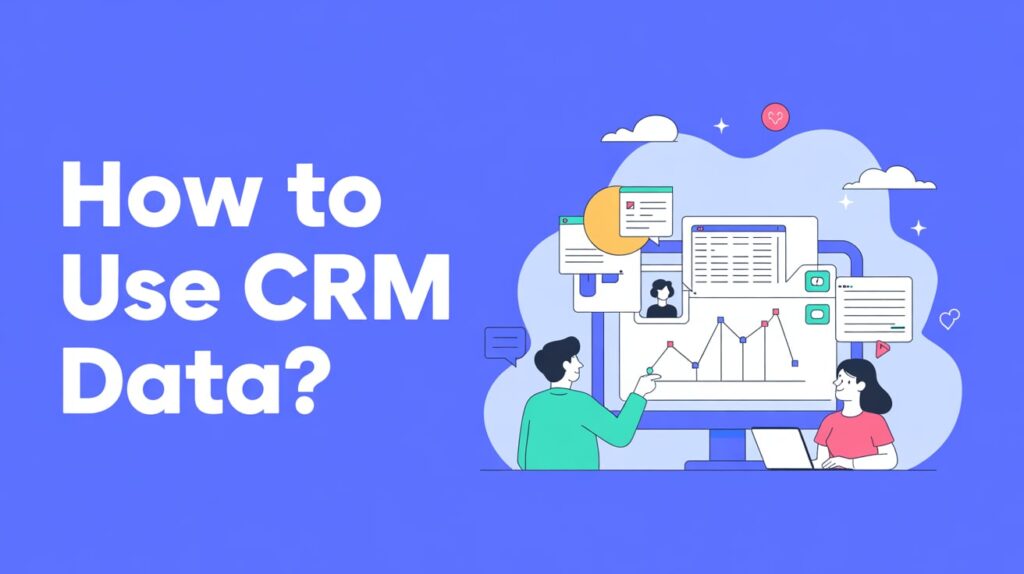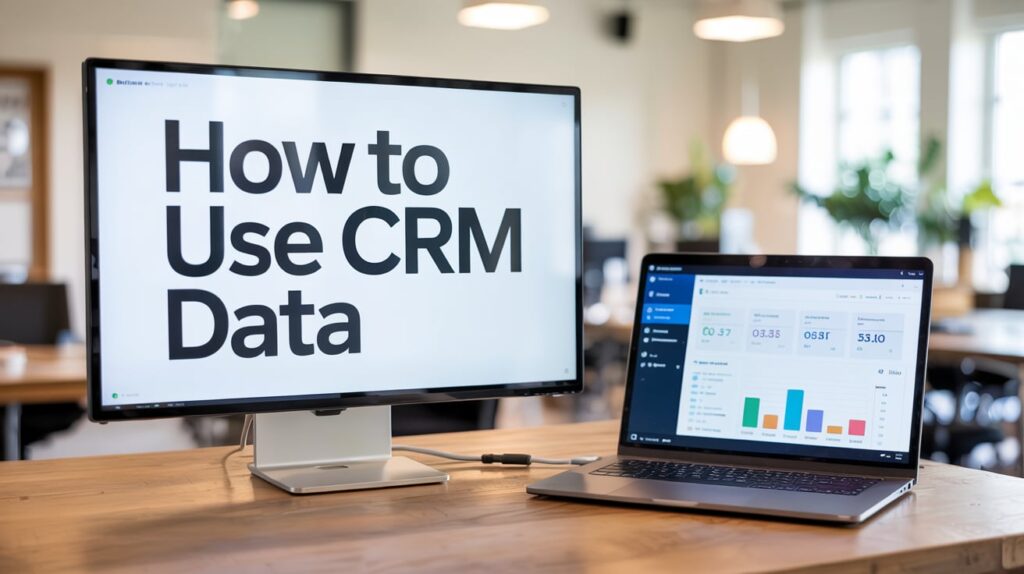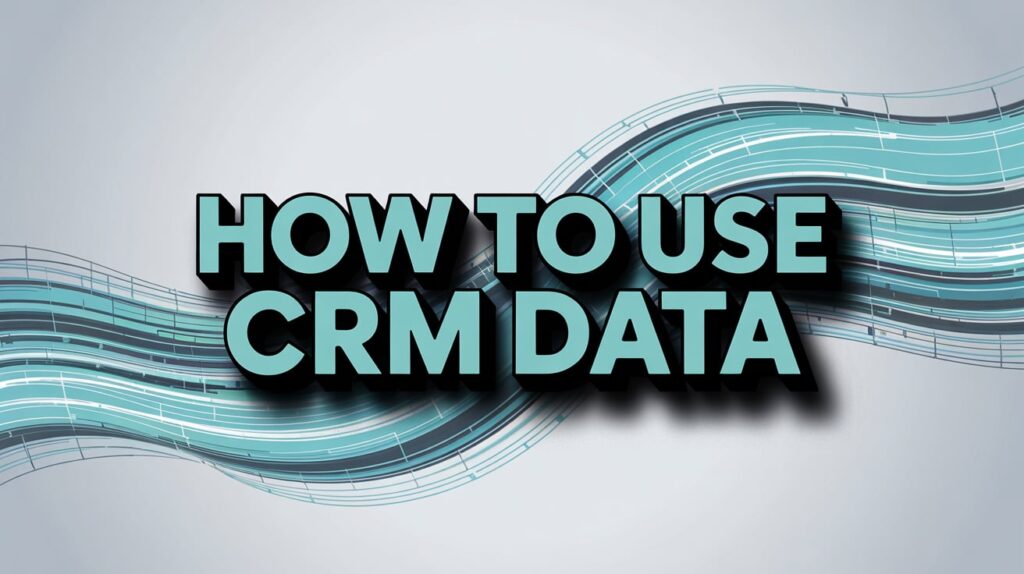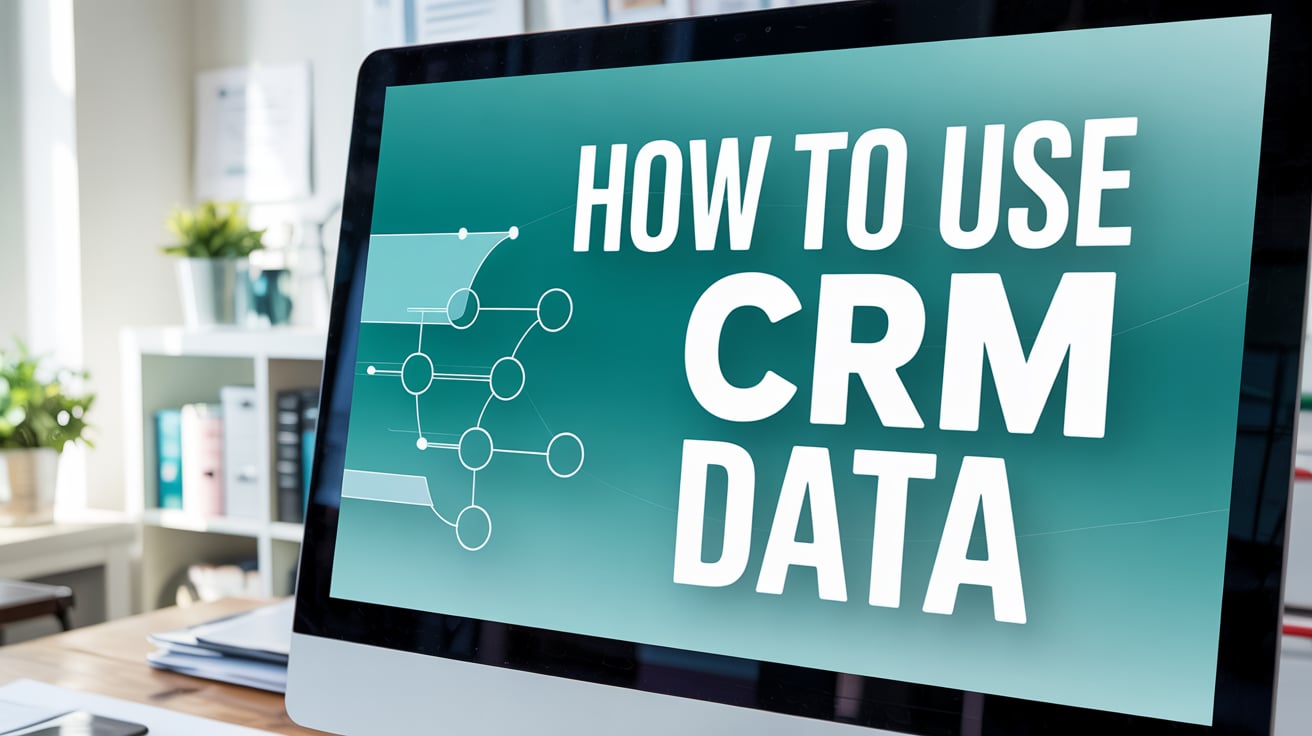Introduction: The Power of CRM Data in PPC
Pay-per-click (PPC) advertising is highly effective, but without the right insights, you could be wasting budget on the wrong audiences. That’s where CRM (Customer Relationship Management) data comes in.
By integrating your CRM (like HubSpot, Salesforce, or Zoho) with your PPC campaigns (Google Ads, Meta Ads, LinkedIn Ads), you can:
✅ Target high-value customers more precisely
✅ Exclude unprofitable leads
✅ Optimize bids based on customer lifetime value (CLV)
✅ Personalize ad messaging for better conversions
In this guide, we’ll break down how to leverage CRM data to supercharge your PPC performance, including:
- What CRM data is most valuable for PPC?
- How to integrate CRM data with Google/Meta Ads
- Advanced segmentation strategies
- Real-world case studies
- Tools to automate CRM-PPC optimization
Let’s dive in!
Why CRM Data is a Game-Changer for PPC
Most PPC campaigns rely on platform-based audience data (like Google’s in-market segments). But CRM data gives you first-party insights into:
✔ Who your best customers are (demographics, job titles, industries)
✔ Which leads convert (and which don’t)
✔ Customer purchase history & lifetime value (CLV)
✔ Engagement trends (email opens, webinar attendance, etc.)
This allows for hyper-targeted, high-ROI PPC strategies.

5 Ways to Use CRM Data in PPC Campaigns
1. Create Lookalike Audiences from Your Best Customers
- Upload your top 10% of customers (by revenue or CLV) into:
- Meta Ads → “Lookalike Audience”
- Google Ads → “Customer Match”
- Platforms will find users with similar behaviors, increasing conversion odds.
📌 Pro Tip: Exclude existing customers to avoid wasted spend.
2. Segment Campaigns by Buyer Persona
Use CRM data to group audiences by:
- Industry (B2B)
- Purchase history (e.g., frequent buyers vs. one-time)
- Lead score (hot vs. cold leads)
Then, tailor ad copy & landing pages accordingly.

Example:
- A SaaS company could run separate campaigns for SMBs vs. Enterprise leads.
- An eCommerce brand could target repeat buyers with loyalty discounts.
3. Adjust Bids Based on Customer Value
- High-CLV customers? Bid more aggressively.
- Low-quality leads? Reduce bids or exclude them.
📌 Tool to Automate This:
- Google Ads + Salesforce Integration → Adjust bids based on lead score.
4. Retarget Based on CRM Engagement
Instead of just retargeting website visitors, use CRM engagement signals like:
- Opened 3+ emails but didn’t buy → “Warm lead” retargeting
- Attended a demo but didn’t convert → “High-intent” remarketing
Example:
- A B2B company could run LinkedIn Ads targeting leads who downloaded an eBook but didn’t book a call.
ALSO CHECK: Top 10 Multispecialty Hospitals in India and Abroad for Quality Care (2025 Guide)
5. Suppress Unprofitable Audiences
Upload lists of:
- Existing customers (if you don’t want to re-target them)
- Unqualified leads (free trial users who didn’t convert)
This prevents wasted ad spend.

How to Integrate CRM Data with PPC Platforms
Google Ads + CRM Integration
- Customer Match: Upload email lists for targeting.
- Offline Conversion Tracking: Track CRM leads back to PPC clicks.
- Smart Bidding: Use CRM conversion data to optimize bids.
Meta Ads + CRM Integration
- Custom Audiences: Sync CRM contacts for retargeting.
- Lookalike Audiences: Expand reach based on best customers.
LinkedIn Ads + CRM Integration
- Matched Audiences: Upload company names/emails for account-based marketing (ABM).
📌 Recommended Tools:
- Zapier (automate CRM-PPC data flows)
- Segment.com (unify customer data)
- Windsor.ai (advanced audience sync)
Real-World Case Studies
Case Study 1: eCommerce Brand Boosts ROAS by 40%
- Strategy: Used CRM purchase data to create lookalike audiences in Meta Ads.
- Result: 40% higher ROAS compared to interest-based targeting.
Case Study 2: B2B SaaS Cuts CAC by 30%
- Strategy: Retargeted only high lead-score contacts from HubSpot.
- Result: 30% lower cost per acquisition (CAC).
Future Trends: AI-Powered CRM-PPC Optimization
- Predictive Bidding: AI adjusts bids based on CRM-predicted conversion likelihood.
- Dynamic Ad Personalization: Ads auto-update based on CRM lead stage.
- Cross-Channel Attribution: CRM tracks PPC impact across email, calls, and chats.
Key Takeaways & Next Steps
✅ Start small: Sync just your top customer segment first.
✅ Test & refine: Compare CRM-based campaigns vs. traditional targeting.
✅ Automate: Use tools like Zapier or Segment to streamline data flow.
Your Action Plan:
- Export your best customer list from your CRM.
- Upload to Google/Meta Ads for lookalike audiences.
- Launch a test campaign and measure performance.
Have you tried CRM-powered PPC? Share your results below! 🚀


1 thought on “How to Use CRM Data to Inform and Grow Your PPC Campaigns”